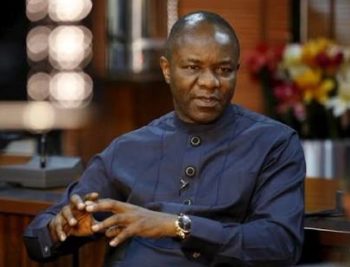
NEITI, which has over the years proven to be an effective agency of the government, last week released the 2015 Oil and Gas Industry Report. Earlier this year the Executive Director, Mr. Waziri Adio had hinted in a television interview that reports for 2015 and 2016 would be published in 2017. It is commendable and inspiring that the ED kept true to his words. The report confirms the opinion in many circles that the oil and gas sector in Nigeria, as important as it may be, is on a decline. The report shows that Nigeria suffered a 54.6% decline in oil revenues $54.5 billion in 2014 to $24.8 billion in 2015, and 2.7% fall in oil production from 798 million barrels in 2014 to 776 million barrels in 2015. Similarly the volume of crude oil declared lost to theft by 18 operators in 2015 was 27.1 million barrels. Though this amounted to only 3.5% of total oil production, the loss was valued at $1.4 billion. PPMC also declared loss of crude worth $25 million, bringing the total declared losses to $1.45 billion. The most instructive part of the report is its indictment of the NNPC of yet another unremitted funds running into billions of dollars. This has again raised the question of transparency at the Nigerian National Petroleum Corporation, NNPC. According to the audit report, the NNPC is yet to account for $16.8 billion being dividends from the Nigeria Liquefied Natural Gas, NLNG, since inception in 2000.
It is perhaps impossible for any individual or organisation to carry out an extensive audit on NNPC and not discover default in payments to the federal government. The most confoundingfeature of the discoveries is the seeming impossibility to get to the root of the issue. There is hardly any audit that has not indicted the NNPC of unremitted funds, yet nobody gets to pay the price for the complacency or the deliberate attempt to short-change the people of Nigeria through the federal government. There is still an unresolved case of $26billion contract scam triggered by the letter from the Honourable Minister of State for Petroleum. In fact the Ministry of Petroleum recently discarded the matter as a non-issue even when the available facts point to a different conclusion.
As espoused by the ED of NEITI,“the [latest] report reveals money to be recovered, leakages to be blocked, and urgent reforms to be undertaken… The most critical take-away is the need to expedite, expand and sustain reforms in this still critical sector of national life”. The word “critical” is instructive here because the Nigerian economy cannot diversify fully without properly harnessing the opportunities in the oil and gas sector vis-à-vis other sectors of the economy that we seek to grow.
If the art of defaulting in payment and financial irregularities in a government parastatal cannot be investigated to a logical conclusion, the government should be able to at least elevate measures to prevent such improprieties. It is obvious that the prevailing structure and system at the NNPC is weak in promoting transparency, whichagain points to the need for urgent institutional reforms. One would have thought that with the President, who has a public perception of zero tolerance for corruption, as the Minister of Petroleum, there would have been a deluge of reforms to instil transparency in the corporation. Sadly, things have remained the same and the organisation has continued to thrive in its usual public image of scandal. President MuhammaduBuhari at a meeting with the visiting Chief Executive Officer of the International Finance Corporation (IFC), Jin-Yong Cai, in 2016 had hinted of an inter-ministerial committee that would be set up to facilitate the reform of the NNPC. It is almost two years now and there is nothing to that effect.
On the positive side it is never too late. The current government still has more than a full year to exit office and that is enough time to commence structural reforms that will make the NNPC become the darling corporation of Nigeria. Clearly, the problem is not the absence of proposals on what to do; the problem has been the political will to reform the NNPC. The General Abisoye’s Report on NNPC and the General Tajudeen Olanrewaju Review Committee both highlighted factors responsible for the corporation’s inability to perform creditably and transparently. The reports also made far reaching recommendations to change the current tide of inefficiency and opacity. Leaving the NNPC to bleed without conscious effort to correct the anomaly is Nigeria losing precious blood that will hurt us more in the future. Nigeria is actually the one bleeding.
